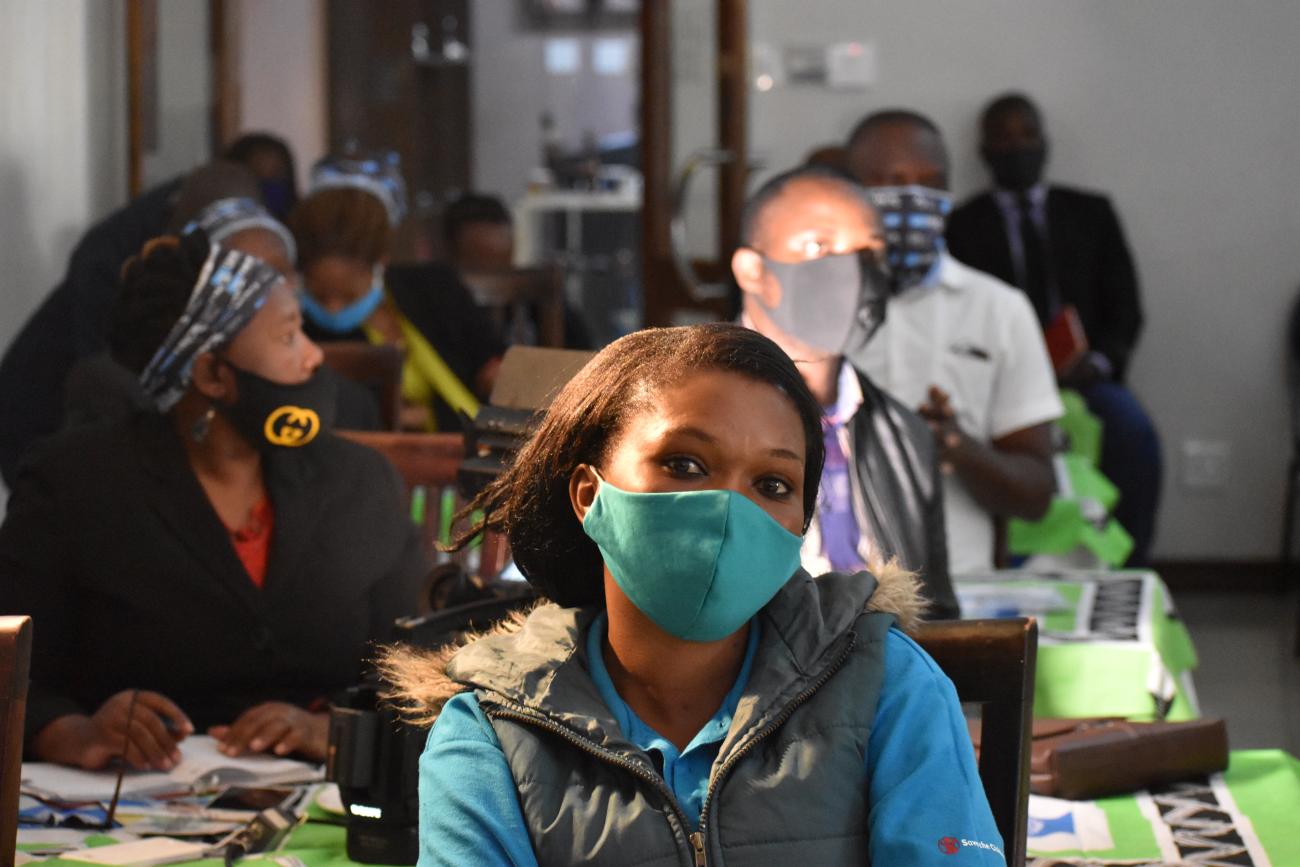The UN Hosts a Crucial UN75 Dialogue with Migrants and Refugees

In collaboration with UNAIDS, the UN hosted an important UN75 Dialogue with migrants, refugees, cross-border traders and drivers, students and sex workers.
In commemoration of the UN’s 75th anniversary, in collaboration with the International Organisation for Migration (IOM), the UN hosted a UN75 Dialogue with people on the move. Held on Thursday, 13th August, at the George Hotel, the dialogue served as a crucial step in understanding the devastating impacts of the COVID-19 pandemic on vulnerable groups such as migrants and refugees.
Migrant mine and factory workers, refugees, cross-border traders and truck drivers, undocumented workers, students and sex workers from across the country participated in the discussion. So too were officials from the Ministries of Health, Labour and Foreign Affairs, partners and NGOs present to hear the voices of the most vulnerable people.
In June 2020, the UN Secretary-General, Mr António Guterres, launched a policy brief on the COVID-19 pandemic, reminding countries of their obligation to protect people on the move, who are more than 70 million globally according to UNHCR. He highlighted that “no one is safe until everyone is safe” and that medicines to diagnose and treat COVID-19 must be accessible to all people.
The UN Resident Coordinator, Ms Nathalie Ndongo-Seh, stated in her opening remarks to attendees; “Particularly important to these conversations are the voices of marginalized and vulnerable groups, including yours as migrant populations. To create an inclusive and equal world, we need to pay attention to the voices of the voiceless. Let your voices be heard.”
A total of 33,263 Emaswati (3% percent of Eswatini’s population of 1.1 million people) were living as migrants in 2019, most of whom resided in South Africa. 48.2 percent were women. As COVID-19 pandemic worsened living conditions and opportunities, this resulted in loss of income, loss of livelihoods and unemployment, in particular for migrant workers who work in the mining, construction, and transport industries.
“Returning migrants from South Africa and other nations often suffer the consequences of bias and stigma, accused of bringing the coronavirus into our nation. In addition to such unfair treatment is the stressful uncertainty regarding home, work, separation from family, lifestyle changes and restrictions of movement. Migrants and returning migrants experience stigma, social and psychological impacts as they struggle to integrate or reintegrate into communities,” stated the Resident Coordinator.
Attendees shared the growing impacts of the COVID-19 pandemic, noting how vital access to health facilities, medication, testing and psycho-social services are not available for mobile populations.
Cross-border drivers expressed how many have lost their jobs resulting in loss of income for their families. They continued that no relief from the Government has been provided, as do they face an indefinite future whilst borders remain closed. Some cross-border drivers have found themselves stuck in South Africa, often resorting, in desperation, to the dangerous option of crossing illegally into Eswatini.
Mine workers face a fall in remittances; many of whom had not received an income since March. Cross-border traders have been unable to access markets in Mozambique and South Africa since lockdowns were implemented, leading to local suppliers charging higher and unaffordable prices.
A university student shared how he had to ultimately forfeit his scholarship to study abroad following the travel ban.
So too are sex workers unable to continue working and provide for their families as lockdown measures are continued.
However, the COVID-19 pandemic provided new opportunities for vulnerable groups, some of whom have created new business and participated in informal trading. Local markets for farmers have grown with technology enabling cross-border traders to use online platforms to continue trade.
Attendees shared solutions to the daily struggles they face, suggesting that government Government ministries engage directly with migrants, cross-border workers, drivers and refugees, including them in decision-making. Truck drivers expressed the need for their protection to be prioritised as they are ultimately responsible for enabling free-trade across borders. Monitoring of people on the move and accessible healthcare and social protection services are key to ensuring a better future for migrants, refugees, cross-border workers, drivers, students, sex workers and other vulnerable groups.
The UN Resident Coordinator closed her statement saying: “Millions of migrants and refugees are unsung heroes, working as essential workers. They tend to the sick and work on farms to keep up the food supply. In this regard, countries need to maximize these contributions by validating migrants’ work, lowering barriers, and exploring options to regularize migrants,”
“As the UN, we believe in the safety, health, and equal opportunities for migrants, as well as stateless, internally displaced persons and refugee brothers and sisters. Throughout the pandemic and beyond, we will continue to advocate for the recognition and the respect of their dignity and human rights.”
The important findings shared at the UN75 Dialogue will be shared with the UN General Assembly in September.
















